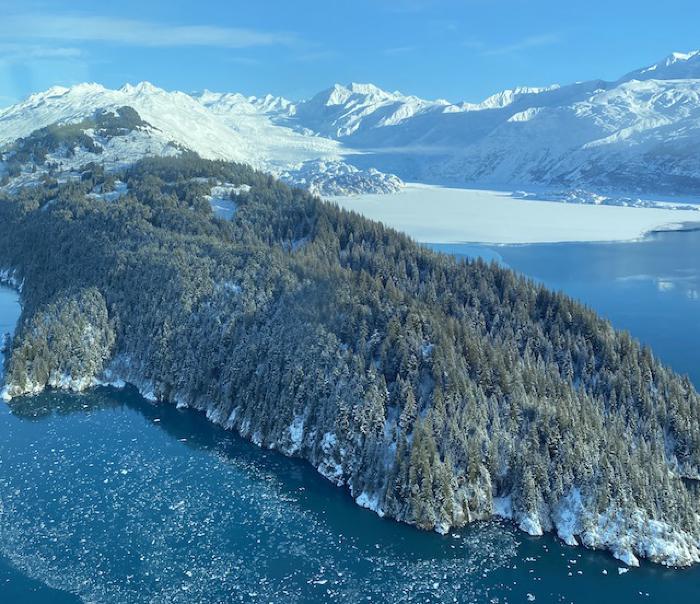Prince William Sound People — Ungalarmiu’at, Ungalarmiut

Prince William Sound lies at the center of the Gulf of Alaska, between the Copper River delta and the Kenai Peninsula. Steep, glaciated mountains rim this wide, forested embayment, filled with fjords and islands. Like Kodiak, Prince William Sound is known for its plentiful marine resources, but furbearers, sheep, and goats also abound. And like Kodiak, the sound is home to Alutiiq communities.
Archaeological data indicate people first colonized Prince William about 4,400 years ago and that they shared many traditions with Kodiak islanders. It is not clear whether the sound’s earliest inhabitants came from Kodiak or the nearby Kenai Peninsula, but they used tools and structures similar to those in neighboring areas, suggesting ancestral connections. Moreover, through time, changes in the archaeological record of Prince William Sound mirror changes on Kodiak, suggesting that residents of both regions were closely related.
Although the Native population of Prince William Sound appears to have always been relatively low, historic accounts reveal that eight distinct Alutiiq groups lived in the sound. Collectively, the members of these groups called themselves Chugach, and they spoke a regional dialect of the Alutiiq language. Although part of the same culture, each Chugach group was independent, with its own political leader and central village. Today, the principal Chugach villages of the region are Chenega Bay, Eyak, and Tatitlek in Prince William Sound, and Port Graham and Nanwalek on the tip of the Kenai Peninsula. Chugach people also live in the Prince William Sound communities of Cordova, Seward, Valdez, and Whittier.
The Kodiak Alutiiq word for the people of Prince William Sound, Ungalarmiut, literally means “people of the east or northeast.” It is derived from ungalaq, the word for an east or northeast wind.
